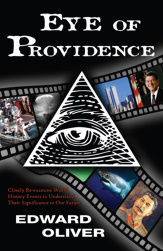
Many Old French words can be found by simply looking them up in any modern French dictionary. This glossary lists those words that are no longer a part of the modern French language. New words will be added just as soon as they become available.
OLD FRENCH DICTIONARY
O - (O.F. p.) Oh!, alas!
Obfusquera - (F. v. fut.) will discredit, defile
Obscurcir - (O.F. a.) obscured, dark
Observera - (O.F. v. fut.) will heed, will pay attention
Obnubiler - (O.F. a.) obnubilated, clouded, obscured
Obscurcir - (O.F. a.) obscured, dark
Observera - (O.F. v. fut.) will obey, will listen
Obtiendra - (O.F. v. fut.) will obtain
Obturee - (O.F. n.) obstacle
Occident - (O.F. n.) West, Western
Occis - (O.F. v.) kill, killed
Occupera - (O.F. v. fut.) will occupy, will takeover
Octante - (O.F. a.) eighty, fourscore
Octobre - (O.F. n.) October
Oeil - (O.F. n.) eye, look, glance, hole
Offres - (O.F. n. plur.) offerings
Oignion/Oignyon - (O.F. n.) an onion, someone with a brash personality, a young upstart
Oiseau/Oyseau - (O.F. n.) bird, fowl
Omnesq - (O.F. a.) omniscient, all-seeing
On/Ont - (O.F. p.) one, them
Onde - (O.F. n.) ocean, open sea, waves, water
Onc/Oncques - (O.F. a.) never, ever
Opprobe - (O.F. n.) reproach, shame, disgrace
Or - (O.F. n.) gold
Oraison - (O.F. n.) oration, prayer
Oree - (O.F. a.) golden
Orient - (O.F. n.) Near East, Far East
Ornement - (O.F. n.) ornament, object of envy
Os - (O.F. n.) bones
Ostera - (O.F. v. fut.) will remove
Ou - (O.F. p.) to where, whereas, either, or, etc..
Oultre - (O.F. a.) beyond
Outrage - (O.F. n.) outrage
Ouvert - (O.F. a.) overt, open, free, broadened
Ouvree - (O.F. p.) overruled
Ouye - (O.F. n.) ear, hearing, attention
Oyseau/Oiseau - (O.F. n.) bird, fowl
OLD FRENCH DICTIONARY
The Old French language included many words from Latin and Greek word roots and also regional dialects such as Provencal and and Catalan. You can also check under the classical "class." and figurative "fig." listings in larger modern French dictionaries. Old French can also differ from modern French, since words like "fleuve," which now means "river," also meant "route" or "course," in Old France because rivers were often used as the safest "route" or "course" when travelling between major cities, since roads were poorly maintained, and robbers often waited along these routes. Please keep in mind that many figures of speech such as the "oil and the wine," which does not seem to make much sense today, in those days meant the "good things."
If you would like to learn more about the writings of the classical prophets and how their prophecies may relate to events in your future, please click on the secure link below to order your book by Edward Oliver.
Copyright 2004-2026 Edward Oliver